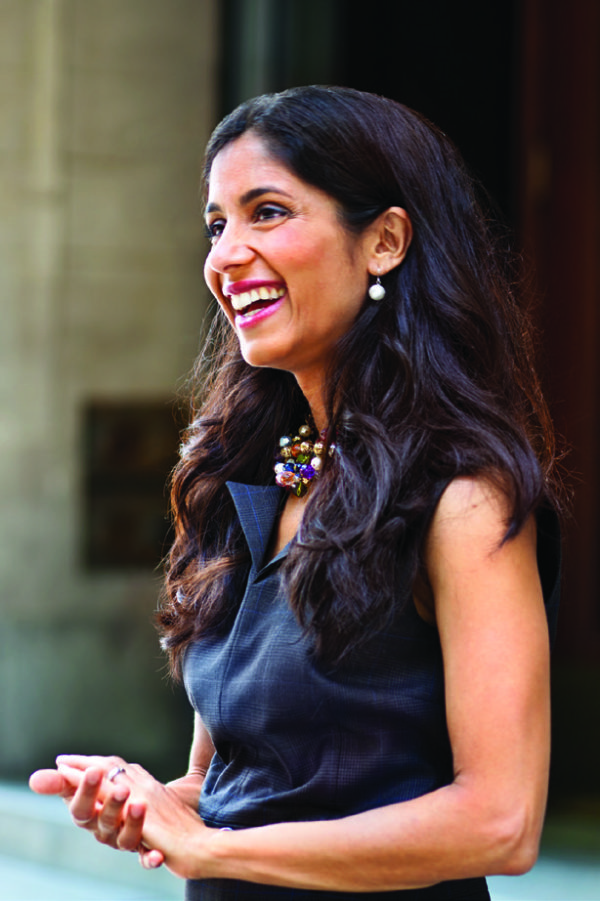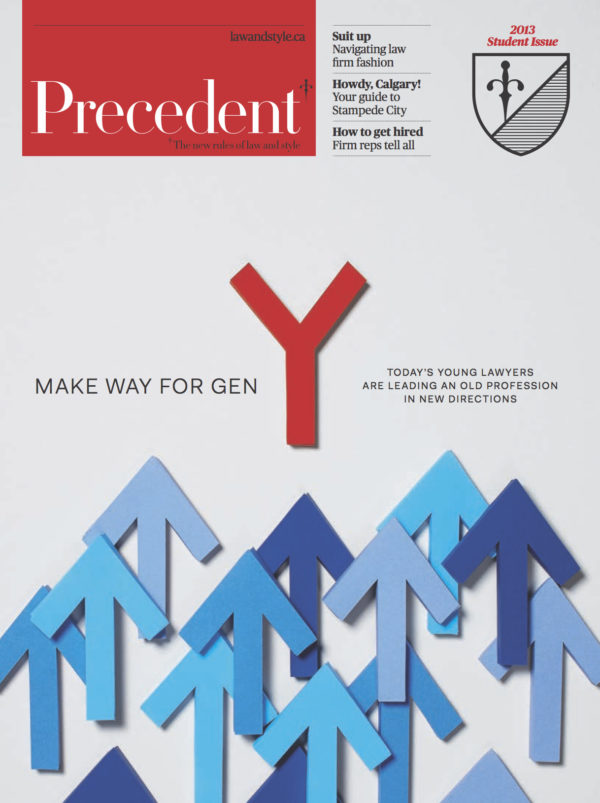
Afshan Ali attended Osgoode Hall Law School. She summered, articled and worked at Torys LLP, where she was a litigation associate for more than six years until she joined the legal department at CIBC’s Toronto head office as counsel. She talks to Precedent about in-house life.
What exactly do you do at CIBC?
Everything from complaints through to regulatory proceedings and right up to pure litigation.
How’s this different from private practice?
When I first got here, I was asking, “Where are the fresh-baked cookies?!” We don’t have the same types of resources. I don’t have “night owls” — a group of secretaries in private practice that works from five to midnight. The work is also more varied, which I wasn’t expecting. I find the pace very fast, which I love.
What are the hours like?
It’s not the same grind as in private practice. The after-hours work is ad hoc on an as-needed basis, whereas in private practice it was just par for the course. But the days here are intense.

Is there anything you miss about working in private practice?
I loved going to court, but I do still get to make submissions — except now they’re to business leaders, managers, directors and executives, not to a judge. I also advocate before regulators.
How’s the salary?
From my experience, salaries for in-house positions are becoming more attractive because institutions are realizing that in order to recruit the kind of lawyers they want, they have to be in the same ballpark. But money isn’t everything. Sometimes the job just comes with a lot of perks that make any disparity in pay irrelevant.
What about advancement? Is there an equivalent to making partner?
There are ways to advance within the department but there are also ways to advance your career within the overall institution. Lawyers who work for an organization develop strong connections to the business and become directors or obtain senior positions beyond the legal department.
Any advice on landing an in-house position?
Get a job in private practice. Work your tail off for the next four to six years. Develop your judgment and legal skills and get exposure to different institutions because those are your clients. Decide which one you’d like to work for. Keep your ear to the ground for opportunities.

This story is from the 2013 edition of PrecedentJD Magazine
Photography by Margaret Mulligan
